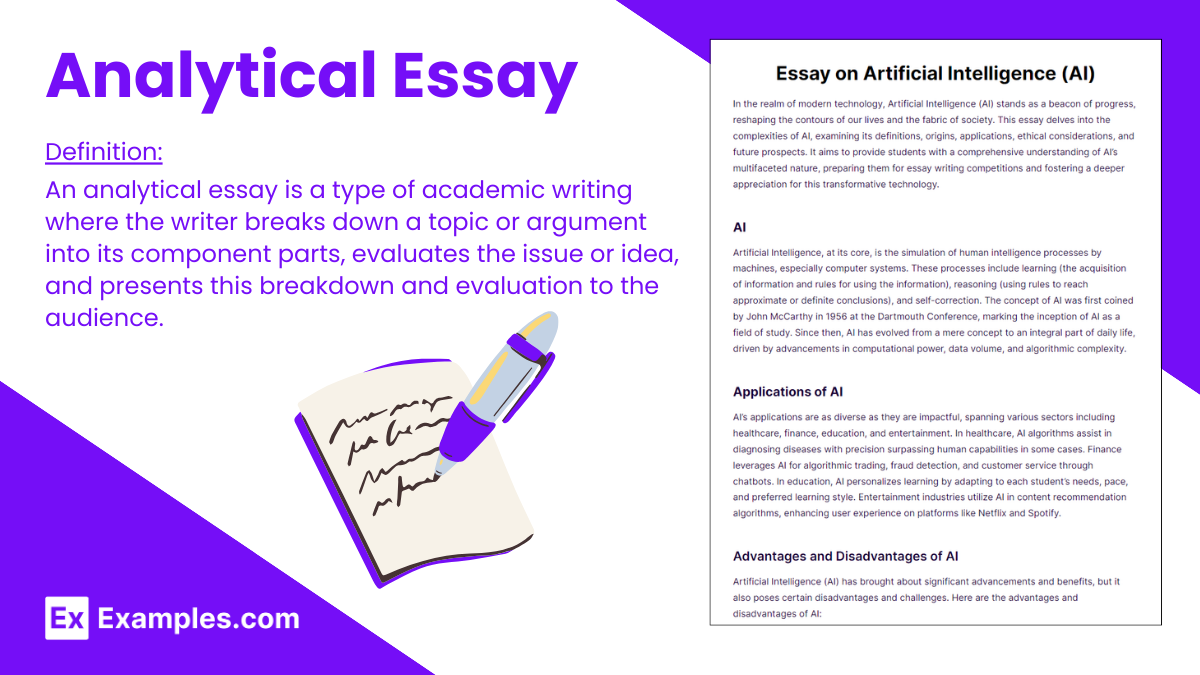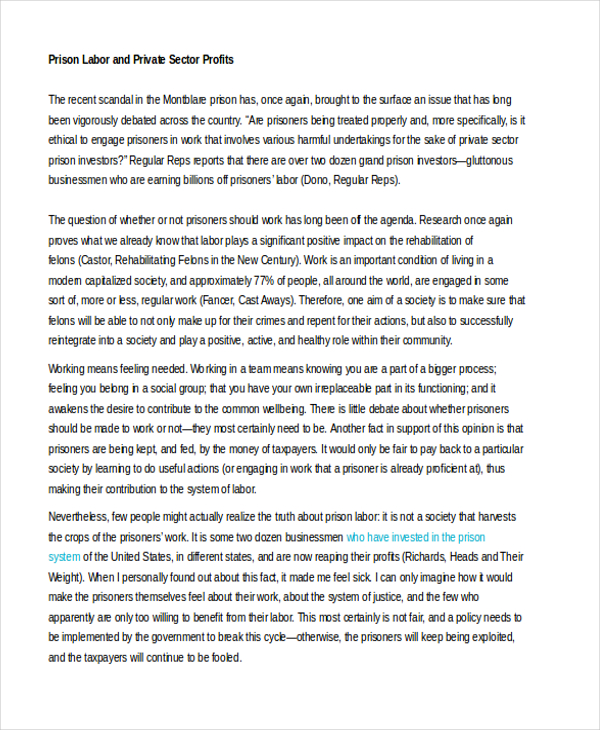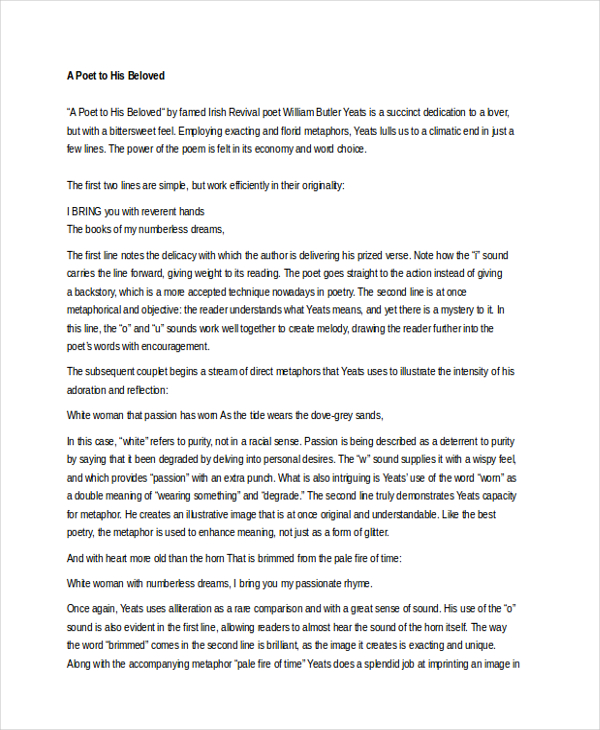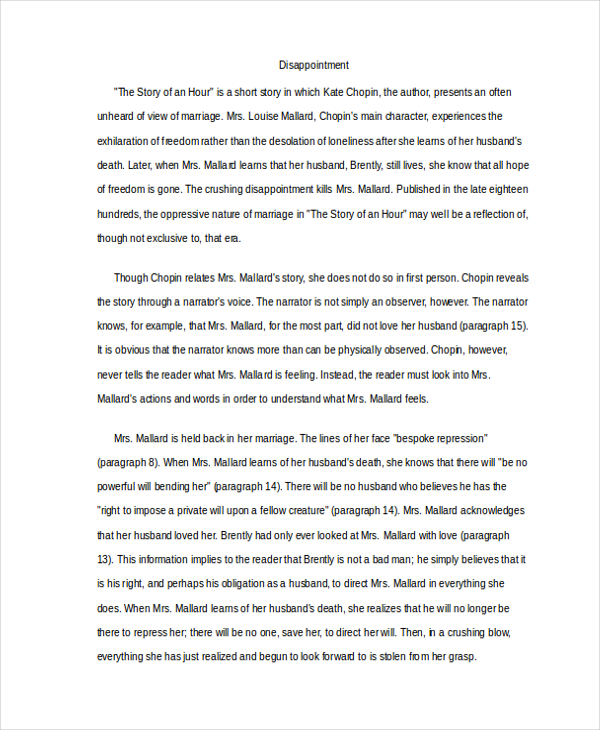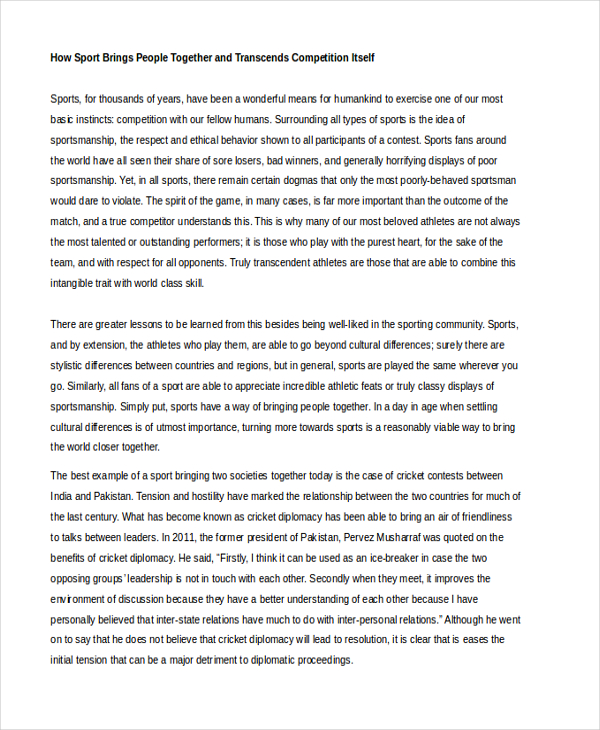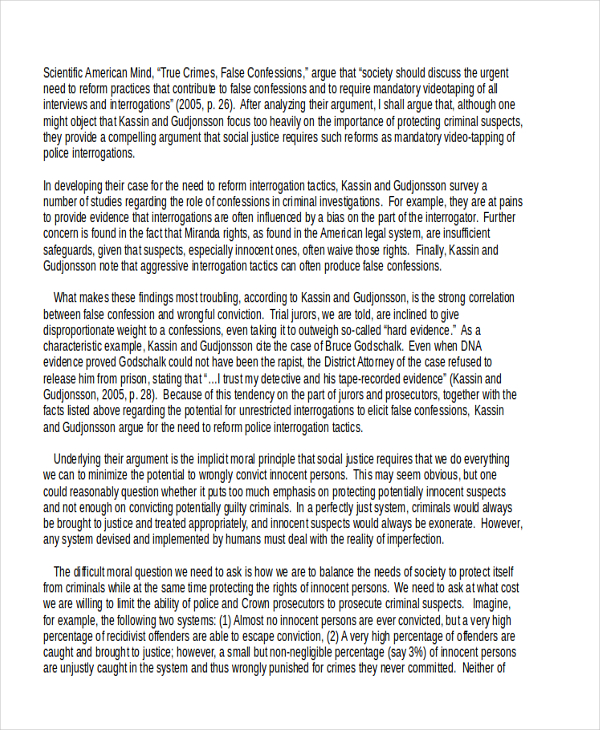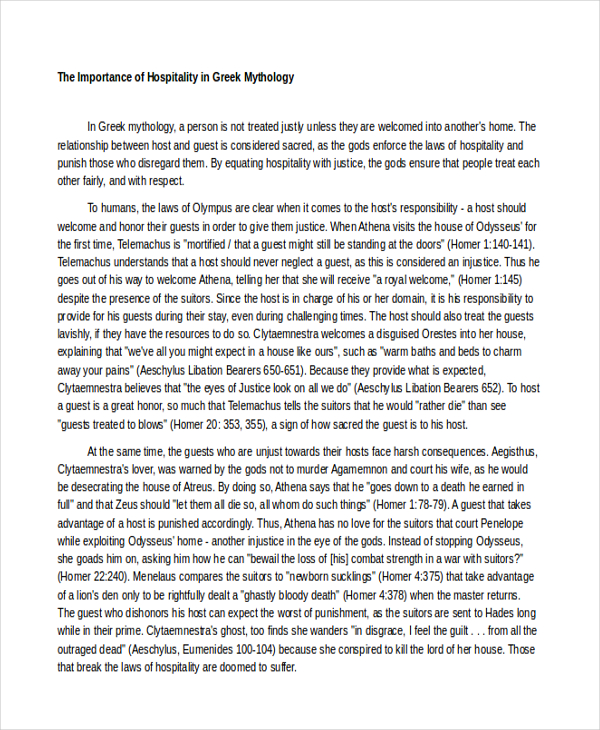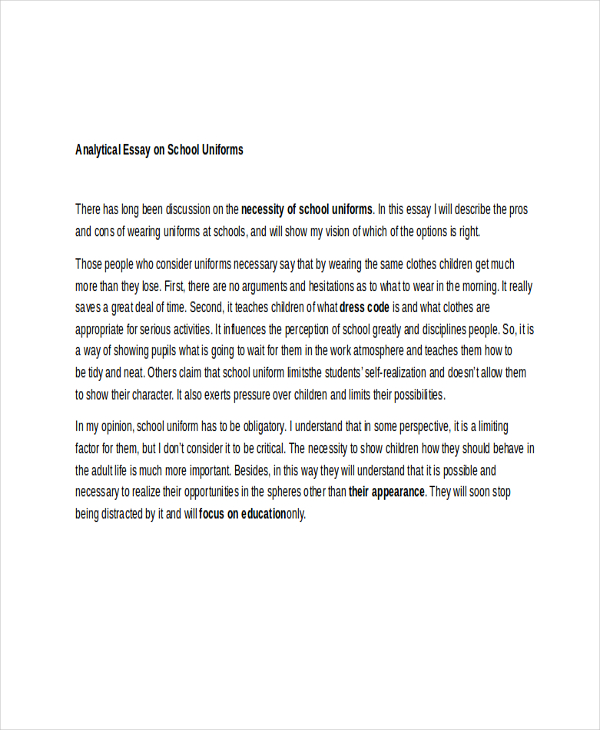12+ Analytical Essay Examples to Download
There are different types of essays which I would assume most of you are already familiar with. Persuasive essays, reflective essays, and descriptive essays are just among the few examples. Essays are rather seen important especially in the life of a student, because it is often what your grades are based on.
Knowing how to start an essay is an important in key in writing effective essay. In addition to that, your point of view will determine the kind of essay you are writing. This article will be able to help you in understanding another kind of essay, which is the analytical essay.
What is an Analytical Essay?- Definition
An analytical essay is a type of academic writing where the writer breaks down a topic or argument into its component parts, evaluates the issue or idea, and presents this breakdown and evaluation to the audience. It aims to convey a deeper understanding and insight into the subject being analyzed. Analytical essays require critical thinking and a clear argumentative structure, often addressing questions of “how” and “why.”
Structure of an Analytical Essay
An analytical essay is structured to break down and examine a specific topic, idea, or argument in depth. The goal is to present a comprehensive analysis that offers insights and a deeper understanding of the subject. Here’s how it’s typically structured:
Introduction
- Hook: Start with an engaging sentence to draw in the reader.
- Background Information: Provide context or background necessary to understand the topic.
- Thesis Statement: Present a clear, concise statement that expresses the main argument or analysis that the essay will support.
Body Paragraphs
- Topic Sentence: Each paragraph should start with a topic sentence that introduces the main idea of the paragraph.
- Analysis: Present detailed analysis of the evidence. This includes interpreting the evidence, explaining how it supports the thesis, and discussing its implications.
- Evidence: Include specific examples, quotations, or data that support the analysis. Make sure to properly cite sources.
- Link: Conclude each paragraph by linking its main idea to the thesis statement, ensuring the essay remains focused on the analysis.
Conclusion
- Summary: Briefly summarize the key points made in the essay, reaffirming how they support the thesis.
- Thesis Restatement: Restate the thesis in a new way, reflecting the insights gained through the analysis.
- Final Thoughts: Offer final insights, reflections, or a call to action, suggesting the implications of your analysis or areas for further exploration.
Works Cited (if required)
- Sources: List all sources cited in the essay in the appropriate format.
How to Write an Analytical Essay: Key Steps
- Choose Your Topic: Select a specific, analyzable topic that interests you.
- Conduct Thorough Research: Gather information from credible sources to support your analysis.
- Formulate a Thesis Statement: Develop a clear, concise thesis that outlines your essay’s main argument.
- Create an Outline: Organize your main points and evidence in a logical structure.
- Write the Essay:
- Introduction: Start with a hook, provide context, and present your thesis.
- Body Paragraphs: Each should include a topic sentence, evidence, analysis, and a concluding sentence linking back to the thesis.
- Conclusion: Summarize the analysis, restate the thesis, and highlight the importance of your findings.
- Revise and Edit: Review your essay for coherence, accuracy, and errors. Ensure clarity in argumentation and evidence presentation
Analytical Essay Samples
- Essay on Artificial Intelligence (AI)
- Essay on Cyber Bullying
- Essay on Deforestation
- Essay on Discipline
- Essay on Education Rules
Analytical Essay Examples
Critical Analytical
Poetry Analytical Example
Literary Analytical Essay
Persuasive Analytical
Short Analytical Sample
Comparative Analytical Example
High School Analytical
What is the Purpose of an Analytical Essay?
The purpose of an analytical essay is to break down and examine a piece of literature, film, event, or any other subject, in order to present a thorough understanding and insightful interpretation of it. This type of essay focuses on analyzing the subject’s structure, components, and underlying themes or messages. It aims to reveal deeper meanings, relationships, and complexities within the subject, encouraging readers to see beyond the surface level. Additionally, an analytical essay seeks to support its analysis with evidence, thereby fostering critical thinking and enhancing the reader’s comprehension and appreciation of the subject matter. Through this detailed examination, the essay not only contributes to academic discourse but also aids in developing the writer’s analytical and evaluative skills
Analytical Essay vs. Descriptive Essay: What’s the Difference?
The main difference between an analytical essay and a descriptive essay lies in their purpose and approach to the topic. Each serves a unique goal and employs distinct methods to achieve its objectives.
| Feature | Analytical Essay | Descriptive Essay |
|---|---|---|
| Purpose | To analyze and interpret various aspects of a topic. | To describe a person, place, object, or event vividly. |
| Approach | Involves critical thinking and structured argument; answers “how” and “why”. | Focuses on sensory details to paint a vivid picture for the reader. |
| Content | Breaks down the subject into components; uses evidence to support analysis. | Uses figurative language, adjectives, and adverbs for sensory descriptions. |
| Objective | To provide a deep understanding or argument based on analysis. | To evoke senses and emotions, making the reader experience the subject. |
| Outcome for Reader | Gains comprehensive insights into the complexities and nuances of the topic. | Feels they have a clear, sensory understanding of the described subject. |
Importance of Analytical Essay
The aim of analytical essay to start is not to present a story but to analyze and it to make readers understand what the writer intends to accomplish with the essay. Some students who are asked to write an analytical essay tend to tell the readers the next scenario of the story instead of analyzing it. Remember that it is not a narrative essay, rather an essay which is aimed at analyzing the subject.
The importance of analytical essay is to provide readers a more comprehensible understanding of a story or a book by assessing all its important elements. It is a good way of practicing critical thinking by looking at a story from different angles.
How to Conclude an Analytical Essay
The conclusion of any essay, like in an expository essay, is to recap the main point in order for the readers to get a gist of the essay. This process of making a conclusion can also be applied to an analytical essay, except the writer should be able to present two important factors: the analysis and the argument.
- The analysis is the study of the main issue that is presented with its supporting elements, like the plot of the story and the characters.
- The argument is your personal response to the subject and line of reasoning based on the analysis.
FAQs
How Do You Write a Text Analysis Essay?
To write a text analysis essay, start by reading the text critically to understand its themes, characters, and plot. Develop a thesis that makes a claim about the text, then organize your essay into an introduction, several body paragraphs that support your thesis with evidence from the text, and a conclusion that summarizes your analysis and reiterates the thesis.
What is the Pattern of an Analytical Essay?
The pattern of an analytical essay typically includes an introduction with a thesis statement, body paragraphs that present evidence and analysis to support the thesis, and a conclusion that summarizes the analysis and reinforces the thesis. Each body paragraph should focus on a specific aspect of the analysis.
Is an Analytical Essay a Persuasive Essay?
An analytical essay is not inherently a persuasive essay, but it can contain persuasive elements. While an analytical essay focuses on breaking down and interpreting information, a persuasive essay aims to convince the reader of a particular viewpoint. However, both may use evidence and reasoning to support their purposes.
What is the Hardest Type of Essay to Write?
The hardest type of essay to write can vary depending on the writer’s skills and interests, but many find persuasive essays challenging due to the need to effectively argue a point of view, using logic, reasoning, and evidence to convince readers to agree with a specific stance.
What is an Analytical vs Descriptive Essay?
An analytical essay breaks down and interprets various aspects of a topic to provide in-depth understanding or argument, focusing on the “how” and “why.” In contrast, a descriptive essay vividly describes a person, place, object, or event, focusing on creating a sensory experience for the reader.
Is an Analytical Essay an Expository Essay?
Yes, an analytical essay can be considered a type of expository essay. Both aim to explain or inform. However, an analytical essay specifically analyzes and interprets elements of a subject to provide deeper insight, while expository essays can also define, explain, or instruct without necessarily analyzing.


